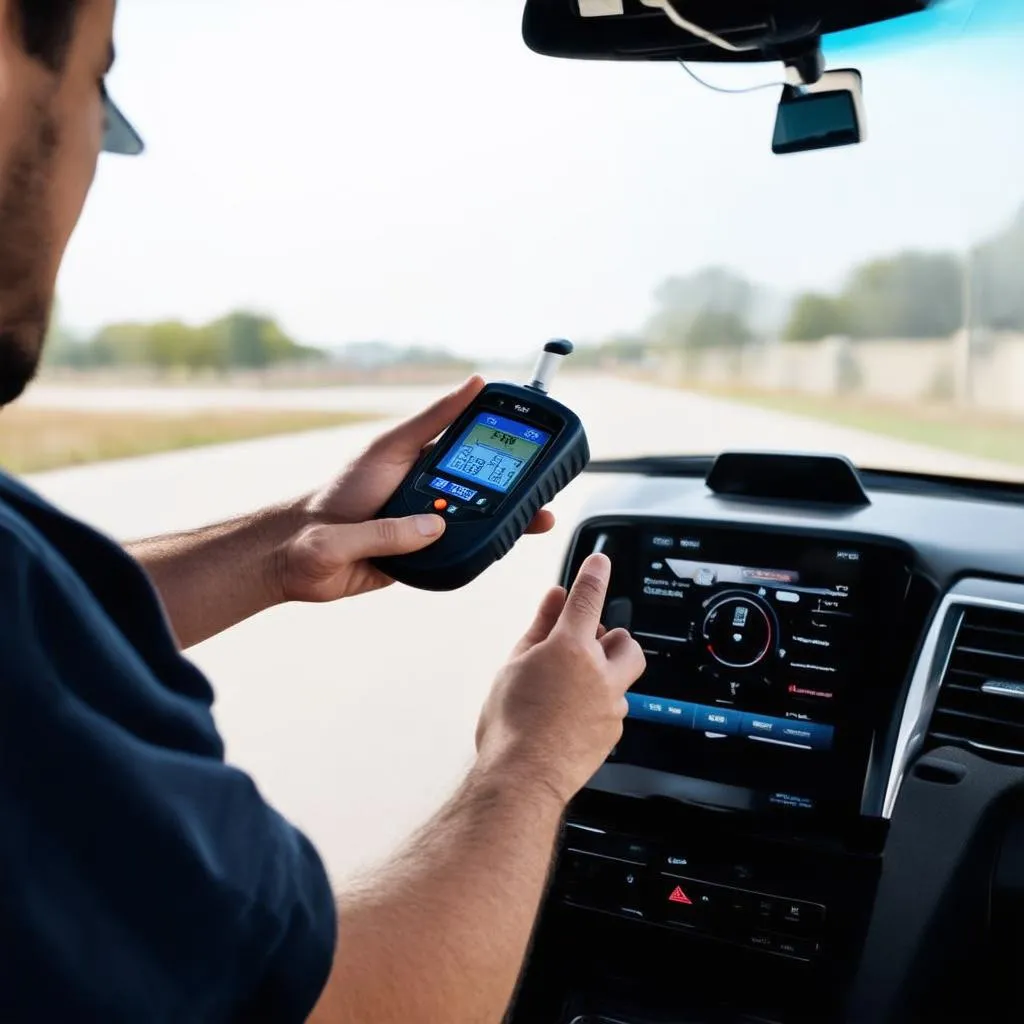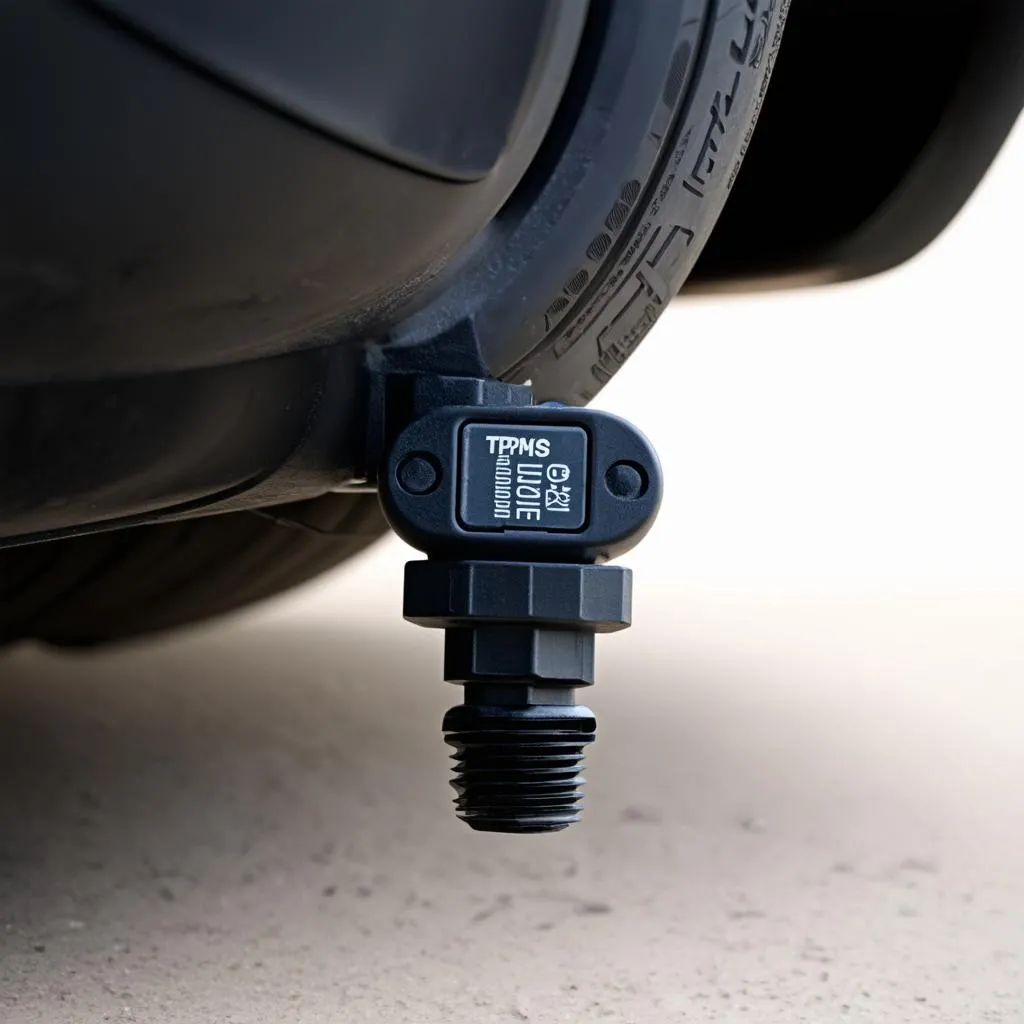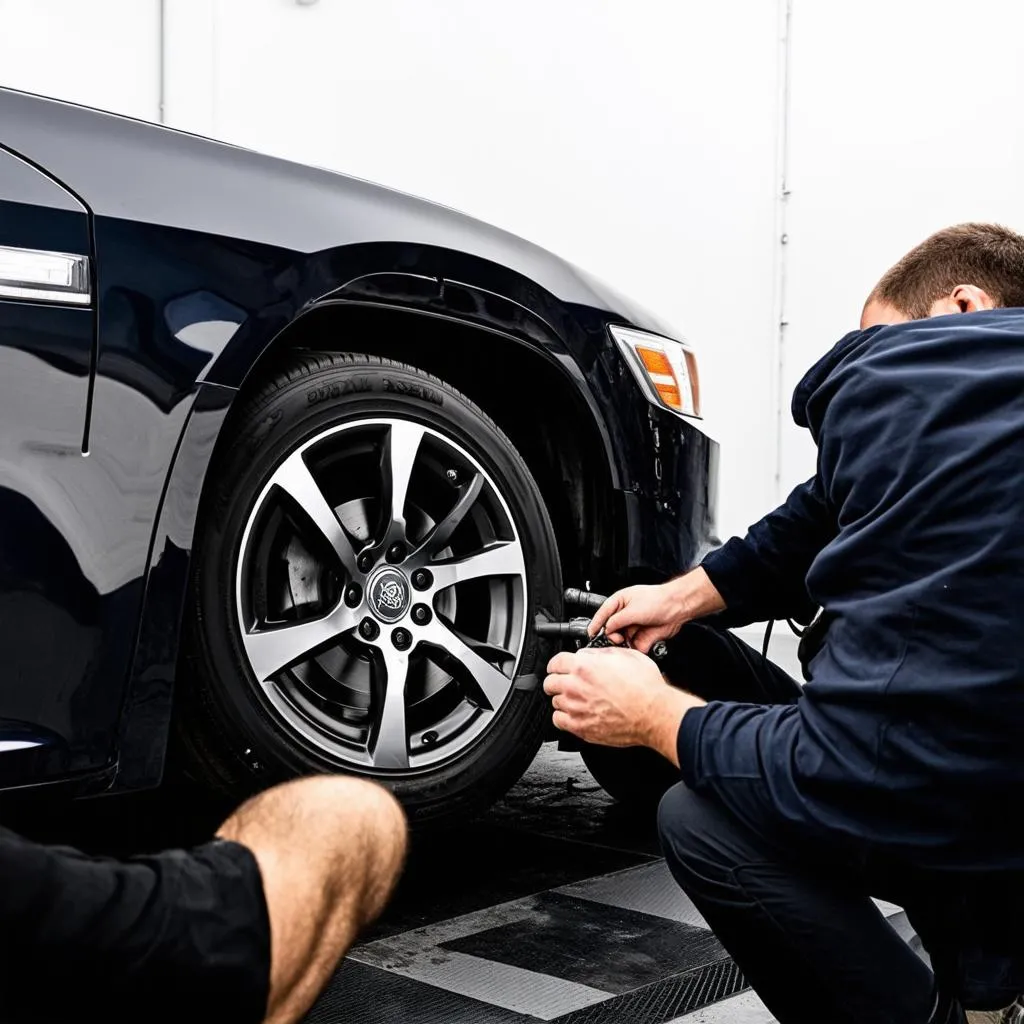“My tire pressure light is on, and I’m wondering if I can reset it using my OBD II scanner?” – This is a common question for many car owners, especially those who are trying to save some money on maintenance. But does resetting your TPMS using an OBD II scanner actually work? Let’s delve into this.
Understanding the Question
The question, “Does OBD II Reset TPMS?” touches upon a fundamental aspect of modern car technology – the interplay between diagnostic systems and tire pressure monitoring. It signifies a desire to understand the capabilities and limitations of OBD II scanners and their applications in resolving vehicle issues.
What is TPMS and How Does it Work?
TPMS (Tire Pressure Monitoring System) is a safety feature that alerts you when your tires are underinflated or overinflated. This system is crucial for preventing tire blowouts, enhancing fuel efficiency, and improving vehicle handling. Modern TPMS systems use sensors embedded within the valve stems of your tires to constantly monitor their pressure. These sensors transmit data wirelessly to a receiver in your car, usually the instrument cluster.
The Role of OBD II
OBD II (On-Board Diagnostics II) is a standardized diagnostic system used in vehicles manufactured after 1996. It allows technicians and car owners to access and read data from the vehicle’s control modules, including engine, transmission, and even TPMS.
The Answer: Not Always
The short answer is, no, an OBD II scanner alone doesn’t always reset TPMS. While some scanners have TPMS functions, they may not be compatible with all vehicles or TPMS systems. The functionality of the scanner is largely dependent on the car’s make, model, and year.
Why Doesn’t OBD II Always Reset TPMS?
-
Limited Functionality: Many OBD II scanners only have basic capabilities, allowing you to read codes and data, but not modify or reprogram settings. TPMS reset often involves re-learning sensor IDs and recalibrating pressure thresholds, which requires a more advanced scanner or dedicated TPMS tools.
-
Vehicle Compatibility: Even if your OBD II scanner does have TPMS reset functionality, it may not be compatible with all vehicles. There are different types of TPMS systems, and some are more challenging to reset using OBD II scanners.
-
Sensor Issues: If the TPMS issue is due to a faulty sensor, resetting the TPMS through OBD II won’t solve the problem. You’ll need to replace the faulty sensor.
Alternative Solutions for TPMS Reset
While an OBD II scanner might not always be the solution, there are other options for resetting your TPMS:
-
Manual TPMS Reset: Some cars allow you to reset the TPMS manually using buttons on the dashboard or steering wheel. This method usually involves a combination of steps like pressing and holding specific buttons, and sometimes requires cycling the ignition.
-
Dedicated TPMS Tools: For more advanced TPMS systems, you may need to use a dedicated TPMS tool. These tools are specifically designed to reprogram and calibrate TPMS sensors.
-
Professional Assistance: If you’re unsure about the best approach, it’s always recommended to consult a qualified mechanic or automotive technician. They have the necessary equipment and expertise to diagnose and reset your TPMS system.
Common User Queries Regarding TPMS Reset
Here are some common questions that people have regarding TPMS reset:
-
“Can I reset my TPMS after a tire rotation?” Yes, you should reset the TPMS after a tire rotation. This is because the sensors are assigned to specific tire locations.
-
“My TPMS light keeps coming on even after I’ve filled my tires to the recommended pressure. What could be wrong?” This could indicate a sensor issue, a problem with the TPMS receiver, or a faulty valve stem.
-
“What are the best TPMS tools available?” There are a variety of TPMS tools on the market. A quick search online or consultation with your mechanic will reveal the best options for your vehicle.
TPMS Reset and Feng Shui
While TPMS reset isn’t directly related to Feng Shui, we can draw a parallel in terms of balance and harmony. Just as Feng Shui seeks to harmonize energy flows in your surroundings, a well-functioning TPMS system contributes to a harmonious ride. A balanced tire pressure ensures better handling, smoother driving, and optimal fuel efficiency, which ultimately enhances the overall experience of your journey.
TechCarUSA: Your Go-To Resource for Automotive Expertise
At TechCarUSA, we believe in providing comprehensive information and resources to empower car owners with the knowledge they need. Whether you’re looking for troubleshooting tips, diagnostic tools, or professional assistance, our team of experts is here to support you.
Explore More with TechCarUSA:
- OBD II Scanners: [Link to article about OBD II scanners]
- Tire Pressure Monitoring Systems: [Link to article about TPMS]
- Car Maintenance Tips: [Link to blog post category]
Need help with your TPMS or any other automotive diagnostics? Contact us on Whatsapp: +84767531508 for 24/7 support.
Let us know your thoughts! Share your experiences and questions in the comments below. We’re happy to help you keep your car running smoothly.
 OBD II Scanner
OBD II Scanner
 TPMS Sensor
TPMS Sensor
 Car Maintenance
Car Maintenance
